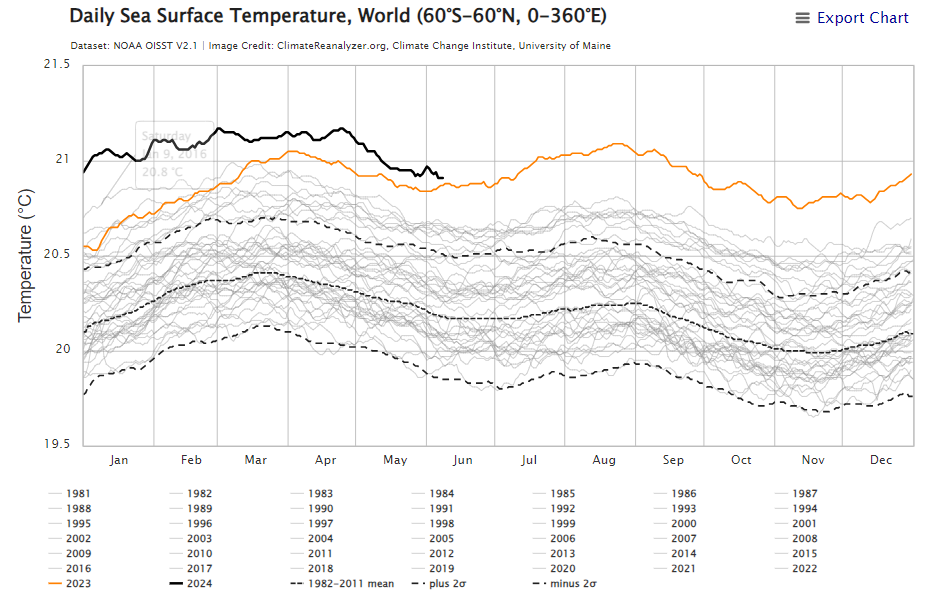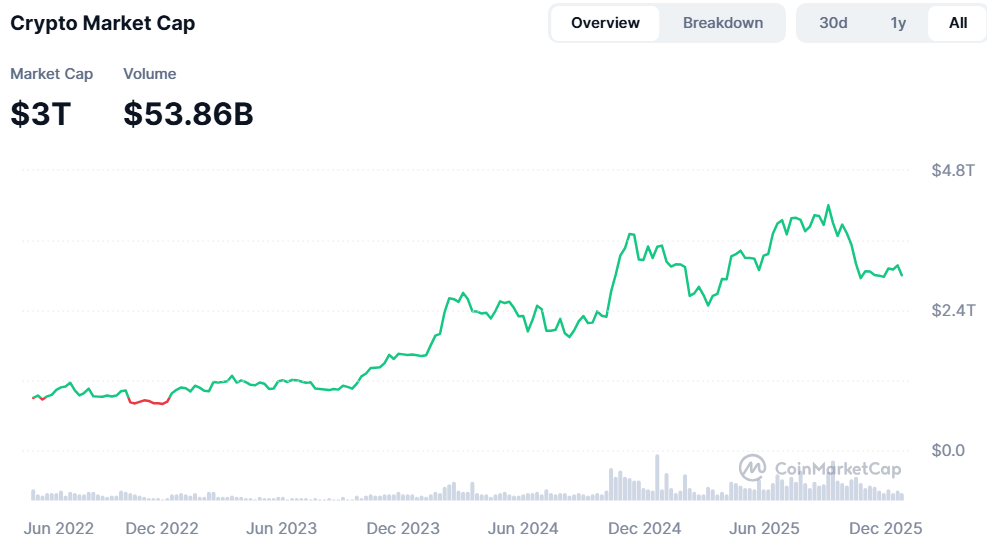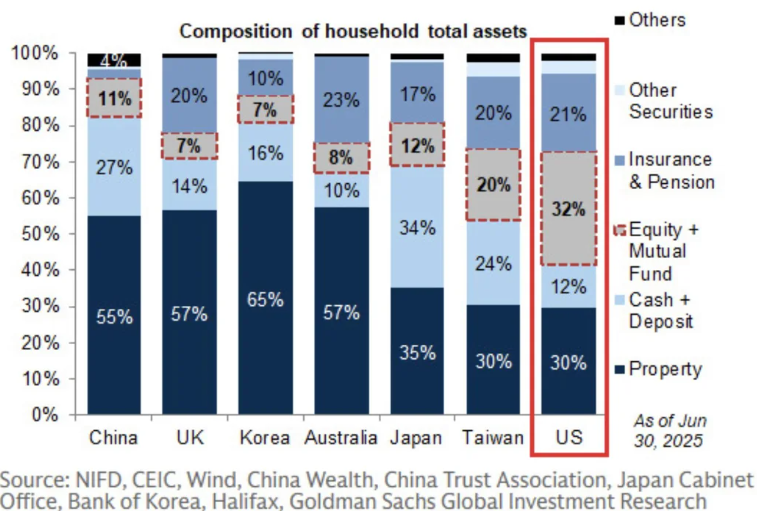Colin Read • June 8, 2024
Two Remarkable and Not Unrelated Events - June 9, 2024

This week saw continued powerful job growth. We also broke some global warming records. These events are not unrelated, but they need not be in conflict.
The U.S. economy added 272 thousand jobs last month. That growth in employment is remarkable. Wages grew at an annualized rate of more than 4% as well, which finally ensures that the average worker is staying ahead of the 3%-ish inflation rate.
We focus on jobs growth for very anthropocentric reasons. Labor is but one resource we employ to produce stuff. We also need machines (physical capital), entrepreneurs (managerial capital), intellectual capital, financial capital, and resources (Earth capital). Our economies are producing more machines all the time, and our stock of intellectual capital increases with every discovery and innovation. Financial capital and budding entrepreneurs, each hoping to be the next Elon Musk (but not too much, that would be cruel) continue to expand the realm of the possible. Putting more people to work is necessary to accommodate the growing amounts of other human-made capital. Hence, higher employment bodes well for greater output since labor is a complement to the other factors, not a substitute for them.
Labor is also unusual because, unlike the other forms of capital, people who work vote for the leaders who best provide them with good-paying jobs. They also purchase the goods and services these various forms of capital produce. These factors combine into what was once considered a virtuous cycle of ever-increasing output that grows at a comfortable rate.
But wait - there is one more factor we have left out. We can make more of all the factors described, except Earth capital. The resources available to us humans and to all the other species are mostly in fixed supply. Only the new energy impinging on our planet, and the wind and ocean currents they drive, is a new and sustainable resource. The rest arrived billions of years ago and become increasingly scarce as our economies expand and consume them.
One essential resource is a sustainable atmosphere. There are myriad atmospheres among the planets in our and other solar systems, but only a delicate balance of gasses will support life as we know it in a sustainable way. For instance, only a little less oxygen in our atmosphere would make animals impossible, while a little more oxygen would promote so much combustion that the Earth is turned into a fiery hell. Our planet also supports a comfortable margin of allowable greenhouse gasses. When in the range of about 250 ppm, a balance is maintained, but if we double that, at least thirteen different processes are set in place that cause drastic changes on our planet.
The Earth itself can increase or reduce the margin that stalls feedback loops which push our planet dramatically in one direction or another. They could be volcanic eruptions, asteroid collisions, or other events that push the Earth beyond its usual limits. As we know since the start of the Industrial Revolution and unparalleled economic growth, humans too can push us beyond Earth's safety margins.
We have now consumed almost in its entirety that margin of safety. Half a century ago, an influential book called “The Limits to Growth,” described a dismal prophecy of human consumption that exceeds the bounds of sustainability. It is not what many wanted to hear. We found enticing and satisfying the proposition we could grow without bounds and provide more for each new generation than enjoyed by the last.
This gets us to the second remarkable record this week. We are now paying the price for unsustainable consumption. The month of May was not the hottest month ever. That distinction rests with last July. This past May was simply the hottest May in history. In fact, combined with last June the hottest June in history, then the hottest July through April, we have now broken monthly records for twelve months straight. This dubious streak is incredibly anomalous and results in the hottest twelve month period in our history - by far. These records have not been officially noted quite yet, but you will surely hear soon. Remember - you heard it here first.
I know you all understand the profundity of this record. The Earth is getting hotter and at a faster rate than scientists have ever discerned, from fossil, soil, and ice samples dating back millions of years. The scariest part is the rate at which our oceans are contributing to this warming. May is a record for them too, but so was March, April, and May of 2023. Each month has broken the monthly ocean temperature month for fifteen straight months now, even longer than the twelve month “winning” streak for the Earth’s surface as a whole.
Heating of the oceans is more profound. We land dwellers notice the hotter temperatures. Some will welcome the shorter winters, some will cope with the hotter summers, and billions will have to move to less inhospitable regions. While we can imagine the displacing effect these increasingly unbearable temperatures have on humans, these effects are a mere annoyance compared to the problems crops will face and the fury unleashed when the oceans contain more energy. Of far greater significance is the amount of latent energy stored in the oceans as their temperatures rise. This energy for a far greater surface area than land itself results in more and hotter moisture in the atmosphere, greater temperature and pressure differentials across the planet, and far more violent storms and climate.
These are the reasons why meteorologists are predicting such a dramatic hurricane season. The Earth’s oceans are loaded and cocked and ready to go off. And, the periodic shift of the jetstream as El Nino transitions into La Nina means that the Atlantic hurricanes will barrel down with greater energy and moisture and without a South-leaning jetstream to break them up.
These record-breaking factors are why global warming translates into climate change. Of course, there are natural phenomena that contribute to global warming, including some phenomena such as the melting of methane-laden permafrost, that amplify the effect of increased greenhouse gasses. It is undeniable that humans have a role to play in this mix, even if at the margins. But, as economists will tell you, what happens at the margins makes all the difference in the world.
Hold on to your hats. It’ll be a dozy.









